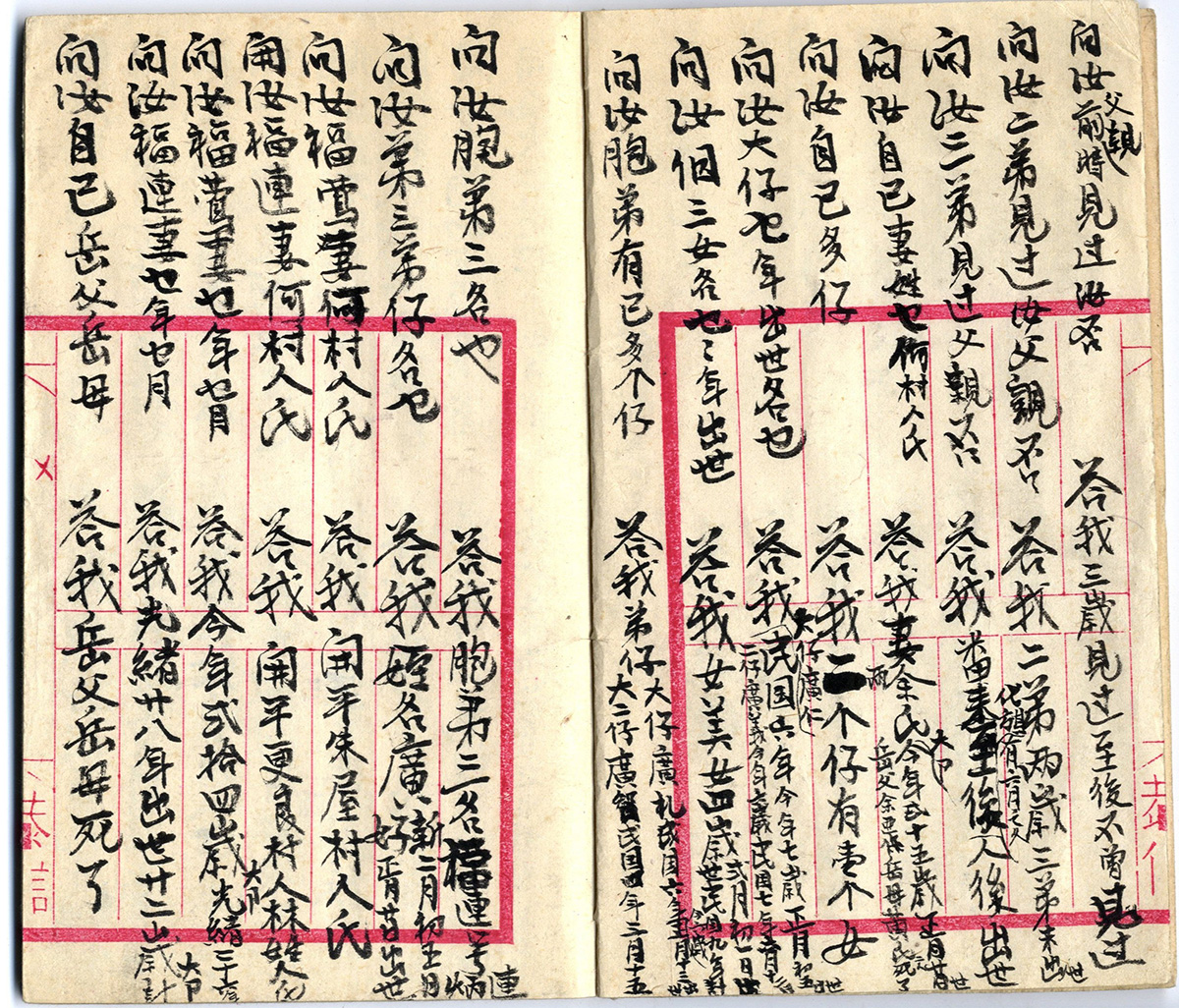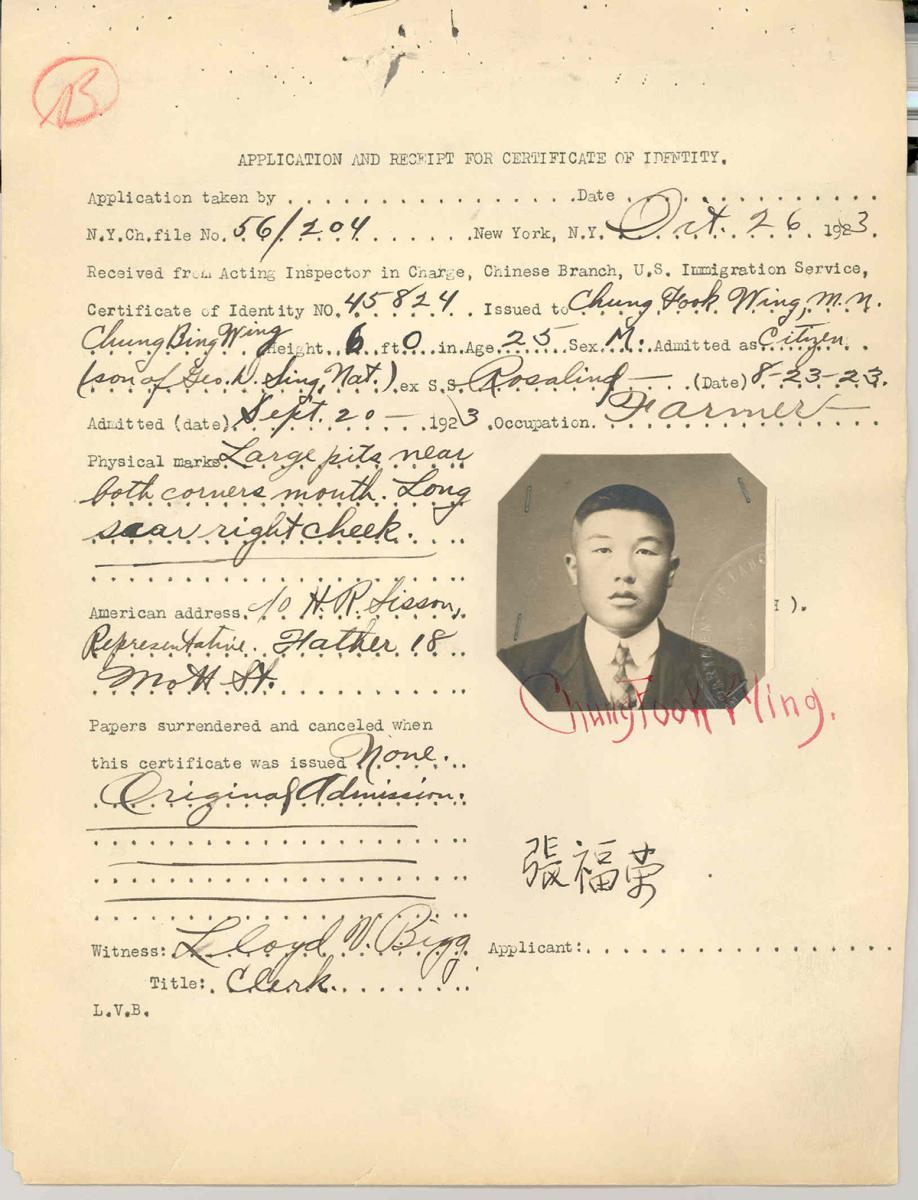
A Chinese Exclusion Act Coaching Book
Spring 2008, Vol. 40, No. 1 | Pieces of History
In the late 19th century, the U.S. Government barred immigration of Chinese into the United States. The Chinese Exclusion Act of 1882 was effective for 10 years, renewed in 1892, and made permanent in 1904. Those who had entered the country before 1882 were allowed to leave and return.
Until the act was repealed in 1943, only a few classes of Chinese were allowed to enter the United States, including merchants, teachers, consular officials, tourists, and family members of such individuals.
To circumvent these restrictive laws, an underground industry in false papers and identities arose. With the proper official-looking documentation, an applicant for admission to the United States could successfully claim to be a member of an exempt class.
Immigration officials at the ports of entry conducted intensive, detailed interviews of applicants, looking for discrepancies that would expose a “paper son”—one whose relationship to a U.S. resident existed only on paper.
“Coaching books” were given to the immigrants before they arrived in the United States to help them pass the interrogations. These books contained facts about the family, home village, and the life of the person whom the immigrant was to impersonate. Once memorized, the book was thrown overboard.
One rare surviving example of a coaching book is in the Chinese Exclusion Act records held at the National Archives–Northeast Region in New York City.* Chung Fook Wing’s case file also contains an application and receipt for a certificate of identity and a sworn deposition of George D. Sing, a U.S. citizen, to facilitate the successful entry of his “son,” Chung Fook Wing, into the United States.
* These records are now located at the National Archives at Philadelphia. 2/5/2025

